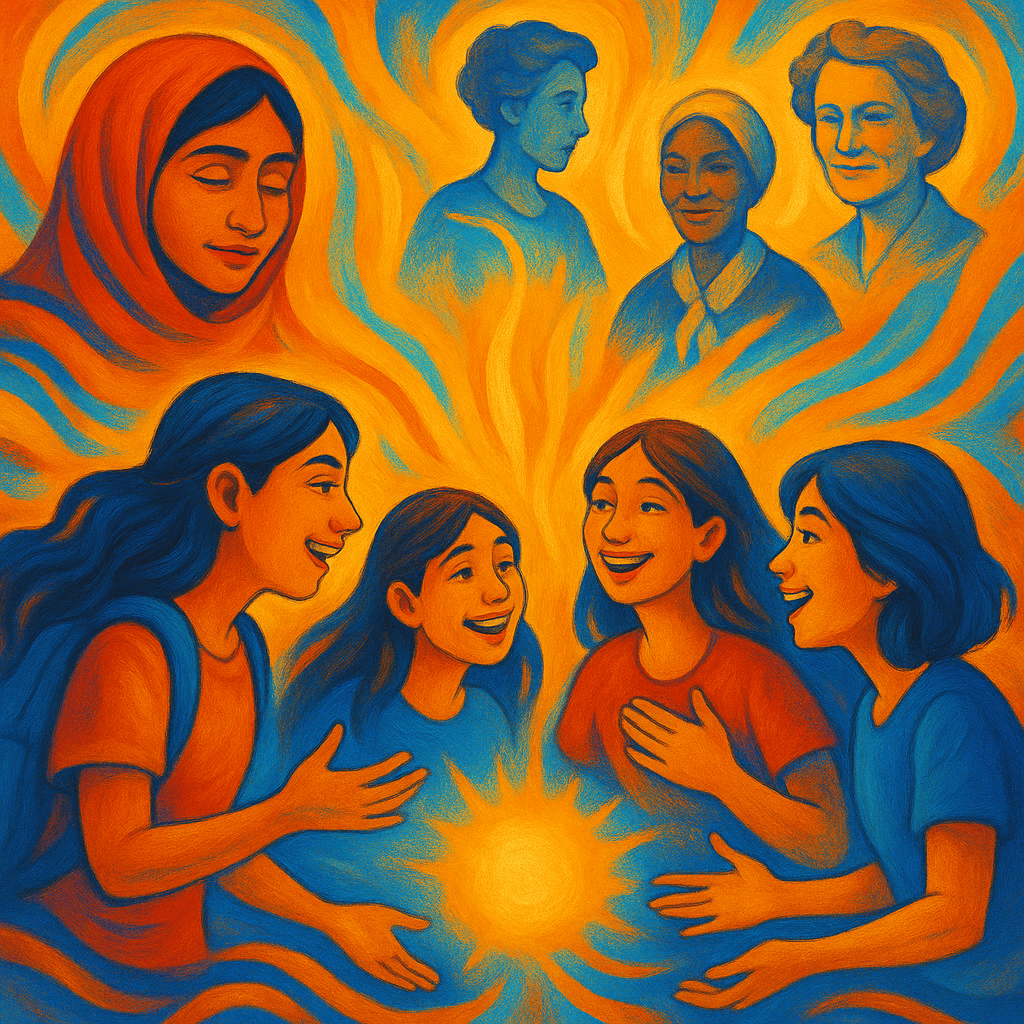On a quiet Monday evening in late May, the screen filled with familiar faces—some thoughtful, some sleepy, some smiling, each framed by the soft light of home. For eight months, these girls had met week after week, building their English through storytelling, art, and cultural exchange. And at the center of it all, from his home in the United States, was Michael Sullivan.
This was not the end of Michael’s role in Be the Voice of Girls—he remains a fixture of the program’s growing legacy—but it was a poignant milestone: his final session with the third cohort, who began their journey last October. Over the months, he had become more than a teacher. He was a steady presence, a playful provocateur, and a gentle listener—someone who understood that sometimes the most powerful voices aren’t the loudest, but the ones that echo long after they’ve spoken.
“I much prefer to do it on my day off,” he said, smiling into the camera. It was Memorial Day in the U.S.—a day for rest, for memory—and yet he chose to spend it here, with them. “It’s crazy doing it at school,” he added with a laugh. “This is better.”
What followed was part history lesson, part reflection, and all heart.
The girls—Almila, Asya, Belinay, Berra, Duru, Hilal, Lina, Şevin—took turns speaking about women whose voices had changed the world: Angela Davis, Toni Morrison, Jane Goodall, Eleanor Roosevelt, Marie Curie, Sojourner Truth, Malala. At first glance, it was a research activity. But in practice, it became something more tender, more powerful. These girls were no longer just learning English; they were discovering mirrors.
Berra spoke about Malala’s courage. Asya explained Angela Davis’s call for prison reform. Lina’s voice shook slightly as she shared what she’d learned about Eleanor Roosevelt, but she pressed on, determined and clear. “She was the first U.S. delegate for human rights,” she said. “After her husband died, she didn’t stop. She kept working.”
Michael, moved, nodded. “Yes,” he said. “Absolutely.”
The session flowed effortlessly between education and revelation. When Mirey Baz, the program’s local coordinator, asked whether these historical women had come from the communities they fought for, Michael paused. “That’s such a good question,” he said. “Some did. Some stood as allies. But either way, they didn’t wait for permission to speak.”
And neither, it seems, would these girls.
Michael introduced quotes from the women they had studied—words that now felt less like distant wisdom and more like intimate advice. Toni Morrison’s line, “If there’s a book you want to read, but it hasn’t been written yet, then you must write it,” prompted a thoughtful response from Lina. “Maybe other people can’t think the way you think,” she said, searching for the words. “So, you must tell them.”
Then came Malala’s declaration: “I raise my voice not so I can shout, but so that those without a voice can be heard.”
“That one,” Michael said, “that one is why we’re here.”
A quiet hush followed. The others nodded.
And just like that, the learning became something that would stay.
As the session neared its end, Michael launched a poll: how do you want to express yourself? The girls chose music, storytelling, culinary arts, design. Hands-on crafts, art therapy, helping others. Lina said that creating things with her hands made her feel calm and alive. Duru mentioned her love of singing and playing guitar and piano. Belinay spoke about rhythm and dance—the way music underscored everything they did.
“I think we all could choose performing arts,” she said. “Even when we cook or draw, we listen to music. We move with it.”
Michael agreed. “Yes,” he said. “Even if it’s not your strength, being around it is a gift.”
He reminded them gently that expression doesn’t have to be grand to be meaningful. “You don’t have to be famous to make a difference,” he said. “Your voice—big or small—can change someone’s life.”
There was no final exam. No certificate to download. But as the session closed and Michael offered his goodbyes, the weight of the moment was clear. “You’ve already made a difference in my life,” he said. “As a father. As a husband. And as a teacher.”
His voice caught slightly. “We love you guys. And we will always be here.”
And maybe that’s the quiet legacy of Be the Voice of Girls. Not just the words spoken in a session, but the ones that linger in the memory. The laughter, the bravery, the awkward first sentences turned eloquent with practice. The gentle insistence that these girls matter—and that their voices, spoken or sung, drawn or danced, will stay with us.
Long after the screen goes dark, their voices remain.


